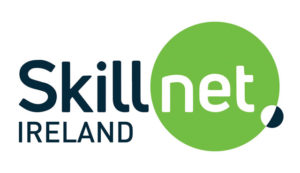Leading the way in enterprise-led skills development


Paul Healy, Chief Executive of Skillnet Ireland discusses how an enterprise-led approach to skills development and investing in workforce planning and innovation, is vital to securing a resilient and competitive workforce.
There are a range of complex challenges now confronting the Irish workforce. Advances in technology, shifting consumption patterns, changing demographics, and a multitude of competitive and geopolitical forces, including Brexit, are constantly driving new skills requirements for employers. These mega-trends are combined with a general convergence and acceleration of technology, characterised by new disruptors such as robotics, artificial intelligence, automation, Internet of Things and big data. These trends have significant implications for the Irish workforce over the coming years.
There is also a clear shift under way from conventional workplace norms in which people have stable jobs and work full-time, to a situation in which this standard employment model is less and less dominant.
In the context of this level of disruption, we are reminded of the words of Abraham Lincoln ‘the best way to predict the future is to create it.’ Skillnet Ireland is determined to provide leadership in shaping the future of workforce development, workforce planning and workforce innovation in Ireland. We know that skills supply is met, in various parts, through outputs from Ireland’s higher and further education system, from labour activation and from immigration. However, for the greatest part, the skills that power Ireland’s economy are derived from within employment. For these reasons it is vital that companies and workers are placed at the heart of the response.
Working with our 50 industry partners, we are engaging in a national conversation on the future of work, specifically in the context of advancing digitalisation and automation. We need to prepare for this disruption and to consider how AI, automation and robotics will impact on the workforce, and in doing so, embrace the value of upskilling and reskilling to counter job displacement. We are also championing innovation in lifelong learning that enables both employees and companies to stay ahead of these challenges. Recent successes from our Future Skills Programme include major industry-led initiatives in artificial intelligence, cyber security, cobotics, medtech, fintech law, hospitality and animation.
The Skillnet Ireland model has been recognised internationally as a best practice approach by the OECD, the EU and the ILO. As a national agency working with the major enterprise groups in Ireland, we are in a position of strength to assess the full labour market landscape, to identify new areas of potential and to facilitate industry-led responses. The solutions delivered by Skillnet Learning Networks are typically facilitated part-time or on a modular basis, offered all year round, available both inside and outside normal working hours, or embedded in the workflow itself. This approach reduces the access barriers for both employers and employees. The Skillnet model also promotes collaboration, encouraging learning between businesses, as well as producing considerable levels of accredited training with 75 per cent of the 380,000 training days being NFQ certified or industry accredited in 2017.
Ireland draws a great competitive strength from our workforce. A well-educated, well-skilled and adaptable workforce has been a pillar of Ireland’s economic/industrial policy since the 1960s. However, this is not a fixed state; skills are highly dynamic and vulnerable to change and obsolescence, meaning a persistent focus must be maintained on the development of the skills of the Irish workforce. The key to thriving in the modern work environment is to invest in the resilience, adaptability and future skills of our workforce.
To find out more about Skillnet Ireland, visit www.skillnetireland.ie.






